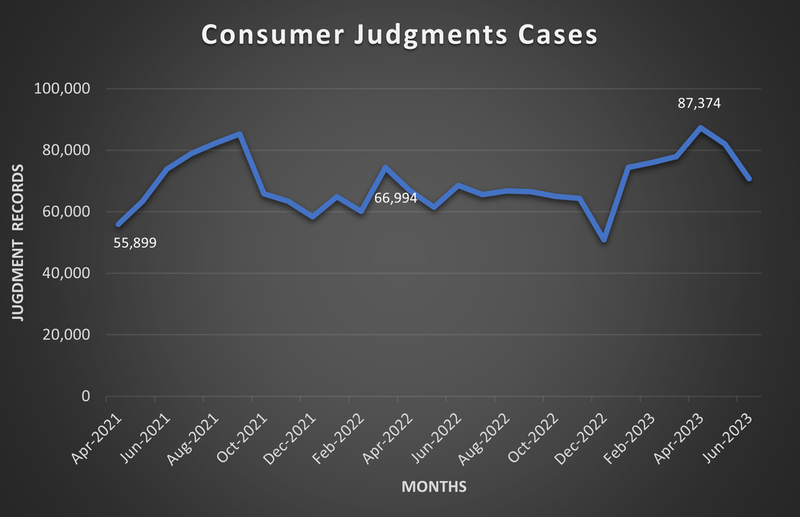Muna Said, Registry Trust
Monday, 31st July 2023
As we reach the midway point of 2023, the cost of living crisis continues to be a serious concern for consumers as they continue to see increases in council tax, water and energy bills.
According to Ofgem, without further changes in government policy, the increase in energy bills across each household will go up by 20%. Council tax is another household bill we have seen increasing, with the average band D council tax set to increase by 5.1% for 23/24 financial year. The average water bill across England and Wales will see an increase of about 11.6% in 2023/2024 according to Thames Water.
ONS reports that between 25th of January and the 5th of February 2023, 22% of adults were borrowing more money due to the cost of living crisis, with 47% of adults saying they found it difficult to pay their energy bills. Per person, the average 2023 debt in the UK totals 105% of the average UK annual salary (£32,760) as of April 2023.
It is worth noting that these increased costs apply to necessities for most households. Also worth considering is the impact the increasing costs of 2023 will have on consumer debt in the next financial year.

Cases of Consumer Judgments from April 2021 to June 2023
The chart above shows a year-on-year increase of 11,095 (20%) cases in April 2022 compared to April 2021. Additionally, an increase of 20,376 (30%) cases in April 2023 compared year-on-year to April 2022.
When we investigate one of the peaks in the chart (September 2021 with 85,283 cases), we learn that energy costs averaged £1,042 in October of 2020 before increasing to £1,138 in April 2021. The average council tax band D increased by 3.9% in the 2020/2021 financial year, and the average water bill was 5% higher than the previous financial year.
According to the House of Commons Library, in April 2022 the annual energy bills for households had increased by 54%. In England, council tax band D saw an increase of 4.4% (2021/2022) and planned additional increase of 3.5% in 2022/2023 financial year. There was also a 1.7% increase in water bills. The following April (2023) we see a 30% increase in CCJs.
With continued energy, water and council tax increases this financial year, and the CPIH inflation rate being at an all-time high since November 1991, indications suggest troubling times for UK consumers. The UK personal household debt currently stands at £1.84 trillion, a figure that has been growing since 2021. As we move into 2024, will the average adult be able to stay afloat and maintain payments of necessary bills?
We are observing a pattern of energy, water and council tax increases followed by increased judgments. Considering this trend, there is a significant likelihood of increasing CCJs in the coming financial year. We will continue to monitor the impact of energy, water and council tax costs on consumer debt.